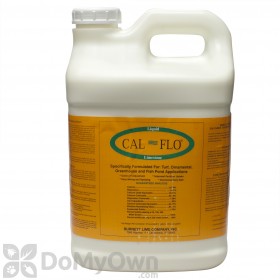Bamboo Preventers & Lawn Maintenance
Bamboo plants are a type of grass, but the prevention of new bamboo growth is not as simple a matter as keeping your grass neatly mowed.
Preventing new bamboo growth on your property can be a challenge if established clumps exist anywhere nearby. The underground rhizomes that bamboo produces to spread horizontally can grow to be as thick and rigid as a full-grown bamboo stalk.
Follow the suggestions on this guide to make your lawn less likely to see unwanted bamboo growth.
Use Physical Barriers to Keep Bamboo Out
Plastic Rhizome Barriers Work Best
If established bamboo stalks exist nearby--in a neighbor's yard or landscaped area--there is a good chance that the extensive underground rhizome root network of those plants has grown to reach somewhere near your property.
Focus on exclusion and keep an eye out for new shoots that may appear in the spring each year. If these do break the surface near your property, you will have an idea of where underground roots are heading. By digging a small trench near the perimeter of your lawn you can get an idea of how far the bamboo's rhizomes have reached and sever them to halt their progress.
Pro Tip
Additional containment or blockage of underground bamboo spread can be achieved by the planting of competing plants with dense root networks along property borders. Flowering plants such as hostas or irises can add to your lawn's bamboo defense.
As a more permanent method of exclusion, a roll of plastic rhizome barrier (40 or 60 mil thickness) can be installed in the soil along borders you may share with an existing bamboo cluster. Ideally a rhizome barrier would be installed around the existing clump of plants, but if a cooperative effort is not an option, it should still succeed in forcing bamboo rhizomes to grow up and out of the soil before they can establish a network in your yard.
Products needed for Step 1
Make Your Lawn's pH Inhospitable to Bamboo
Bamboo grows best in a slightly acidic environment. Fertile soil with good drainage and a pH between 6.0 and 7.0 is an ideal home for new bamboo growth. Use a home soil test kit to find the pH level of your lawn and other useful information about the soil under your feet.
With this detail in hand, you can consider using soil amendments to adjust the pH level of your lawn or landscaped area. It is important to consider your turf and any other desirable plants nearby. If they are more tolerant of alkaline soil, for example, the addition of lime to your soil would result in a more basic or alkaline growing environment where bamboo could not thrive. The more alkaline soil would make it difficult or impossible for bamboo to absorb the nutrients it needs to spread.
If the plants in the area are more acid-tolerant, you could boost the soil's acid level level by adding aluminum sulfate, iron sulfate, or certain organic mulches. This would also make the soil unwelcoming to new bamboo and make a bamboo invasion much less likely.
Products needed for Step 2
Mowing to Suppress Potential Bamboo Growth
If small shoots do break ground in your lawn during the spring growth window, cut them back right away, and mow the area regularly to suppress future growth.
Larger shoots that may appear should be cut back with hand tools. Mowing and cutting that is performed for bamboo suppression should be done frequently in an attempt to exhaust the rhizomes that are living underground.
If you were unable to prevent bamboo from finding its way into your lawn, learn how you can control bamboo growth with our Bamboo Treatment Guide.










